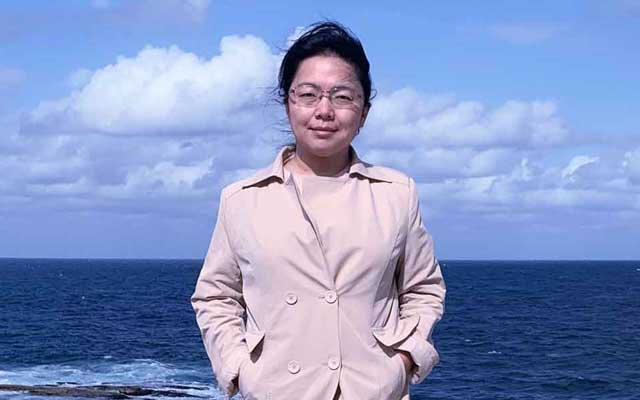Joining forces: humans and AI systems
Associate Professor Lina Yao is leading important research at CSE in the area of human-machine collaboration.
Associate Professor Lina Yao is leading important research at CSE in the area of human-machine collaboration.

As a high school student, Computer Science and Engineering Senior Lecturer and Scientia Fellow, Dr. Lina Yao, opens in a new window, was browsing through a book store. She spotted on the shelf ‘The Road Ahead, opens in a new window’ by Bill Gates and started flicking through the pages.
“I still clearly remember the vision portrayed in this book, and the story behind Bill Gates I found hugely inspiring. I almost finished reading it while in the shop. I purchased a copy and it sat under my pillow for a long time!”
This serendipitous moment is what Dr. Yao attributes to setting her on the path to study computer science and continues to inspire her today.
Dr. Yao’s research interests lie in developing novel theoretically sound and empirically useful intelligent systems and techniques to better integrate partnerships between humans and AI systems.
At the Data Dynamic Lab, opens in a new window (D2 Lab) which Dr. Yao directs, these research interests are contributing to applications in healthcare, cybersecurity, transportation, industry 4.0 and e-commerce. They strive to develop novel data mining, machine learning and deep learning algorithms to enable comprehensive data analytics, as well as designing systems and interfaces to enable new ways of human-machine interactions.
“Our research will improve human welfare and wellbeing, enhance the human decision-making process and most importantly reap the benefits of AI systems.”
My vision is to build intelligent human-machine cooperation by creating mutual understandings between the behaviours of humans and Artificial Intelligence systems
One of the projects that most excites Dr. Yao is exploring learning frameworks for machines to infer and reason humans’ intent. This research will pave the way to boost the development for a wide range of human-machine collaboration applications across healthcare, manufacturing and cybersecurity.
For example, in the health sector, intent recognition and prediction can be used to track and analyse an individual’s behavioural patterns, predicting indicators of physical and mental wellbeing. Dr. Yao says this information can be used in supporting the establishment of healthy lifestyles, early intervention to mitigate health risks, and even proactive health management.
Another application is the development of intent-aware, human-machine cooperation that will help build predictive manufacturing and maintenance with increased synergy and improved performance.
“It will enable more precise, higher-quality and safer manufacturing, where the rigid mass-manufacturing assembly lines will be augmented by a team of humans and smart machines. The result will be lower operational costs, less downtime and fewer injuries.”
If you are interested in learning more about Dr. Yao’s work or potential research collaboration opportunities, get in touch: lina.yao@unsw.edu.au.